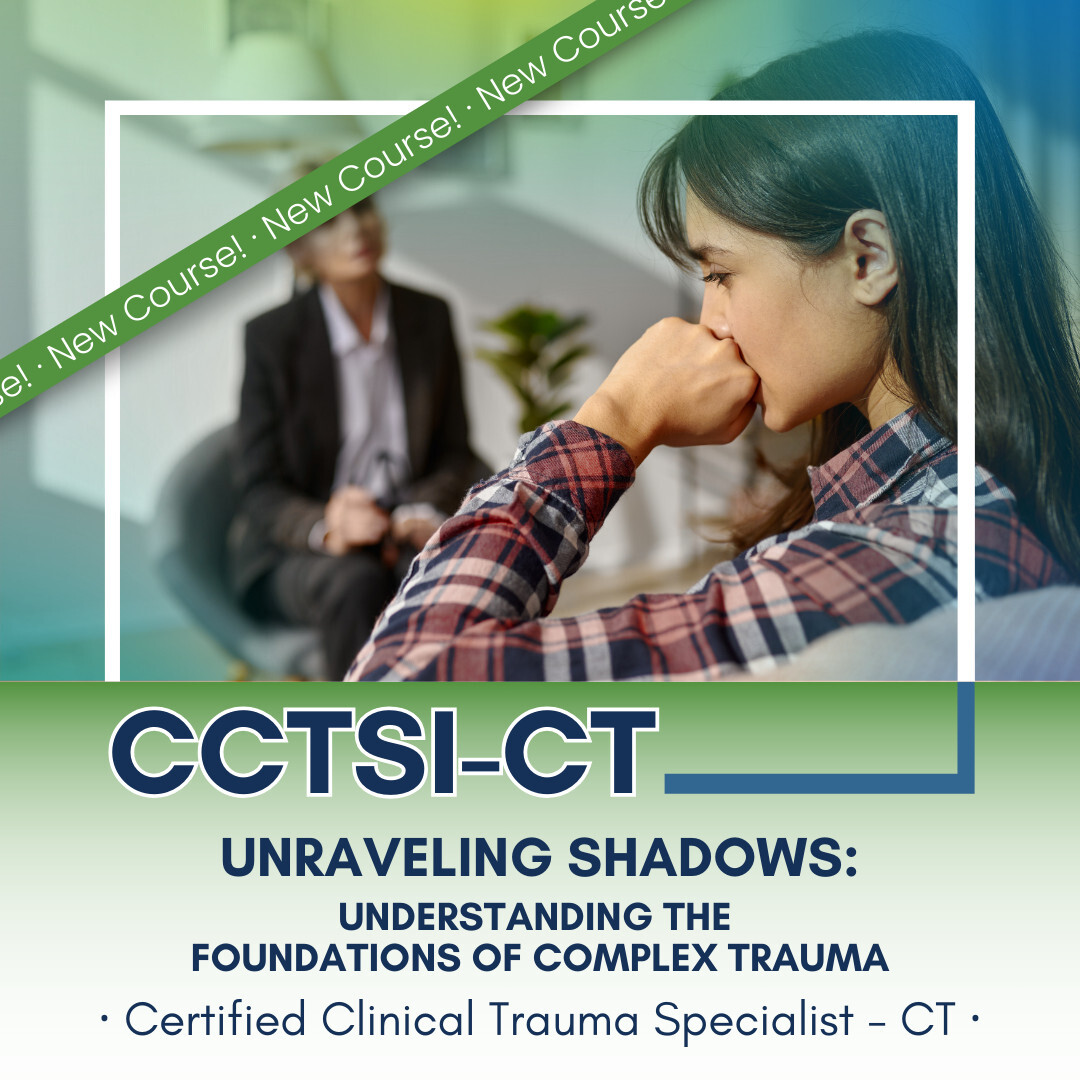Course Description
The focus of this course is to arm the learner with skills and knowledge to step past the treatment of single event trauma and deal more effectively on resolving Complex PTSD training is acquiring skills for effectively treating those challenging clients with complex post-traumatic stress, can present with a myriad of difficult symptoms including intense abreactions/flashbacks; severe “depression-like” shutdown and avoidance; dissociation; relational difficulties and challenges; chronic emotional and somatic dysregulation; chronic pain; and psychotic symptoms. training that discusses the established and emerging research on the phenomenon of dissociation as well as clinical approaches for clinicians treating dissociation. The curriculum will include a review of dissociation research, an overview and application of structural dissociation, the prevalence of dissociation in trauma clients, and clinical approaches. The initial sessions will outline how dissociation develops and how to identify it in clients. The subsequent sessions will detail various dissociation presentations and discuss dissociative identity disorder, prevalence, and treatment approaches. The second day will focus on strategies for working with clients with dissociation at various levels.
Focusing upon working in a Salutogenic and phasic model, the participant will learn how to titrate treatment to minimize discomfort and crises while, at once, accelerating treatment gains in early, mid and latter stages of treatment. The course provides a balance of current evidence/science-based interventions and protocols paired with experiential practice wisdom from clinicians who have successfully worked with population for decades. Participants completing this course will discover a newfound sense of competency and excitement for working with these clients who, in the past, have baffled even seasoned clinicians.
Learning Objectives
- Articulate the differences between simple and complex trauma and identify the distinct challenges for diagnosis, treatment planning, stabilization and treatment of COMPLEX TRAUMA.
- Understand the neurobiology of COMPLEX TRAUMA and how chronic exposure to threatening environments can produce the spectrum of symptoms of COMPLEX TRAUMA.
- Appreciate the role that attachment trauma and Adverse Childhood Experiences (ACEs) play in risk for and creation of COMPLEX TRAUMA; and how successfully addressing attachment issues can accelerate treatment for COMPLEX TRAUMA.
- Articulate the causes of attachment trauma (e.g., relational threat/anxious attachment; avoidant attachment; disorganized attachment) and how these adaptations are easily misunderstood as personality disorders.
- Articulate the importance of neuroplasticity/pruning and understanding neuronal sequencing (i.e., “neural networks”) in treating COMPLEX TRAUMA and all post traumatic conditions.
- Understand the important role that conditioned threat response and subsequent ANS dysregulation play in generating and sustaining the symptoms of all post traumatic conditions including COMPLEX TRAUMA.
- Articulate and explain how dissociation symptoms (e.g., numbing; derealization; depersonalization; hearing “voices”; fractured multiple ego-states; dissociative identity) are adaptations to recurring (usually developmental) trauma.
- Understand symptoms of COMPLEX TRAUMA as adaptations to ongoing developmental trauma that can include extreme symptoms including self-injury; suicide; dissociation; numbing; addiction (process and substance); eating disordered behavior; chronic & intractable depression; hyper/hypo sexuality; and rage.
- Articulate the role of crucial non-specific factors of positive expectancy and therapeutic relationship using Feedback Informed Therapy (FIT) as central focus of treatment with COMPLEX TRAUMA.
- Learn and appreciate the pivotal role of psychoeducation in treating COMPLEX TRAUMA to help survivors to begin to honor their survival, ameliorate shame and move towards self-compassion.
- Learn and implement the four “common factors/active ingredients” shared by all effective trauma therapies for clients with COMPLEX TRAUMA.
- Appreciate the ubiquitous role of reciprocal inhibition embedded in all evidence-based trauma therapies.



